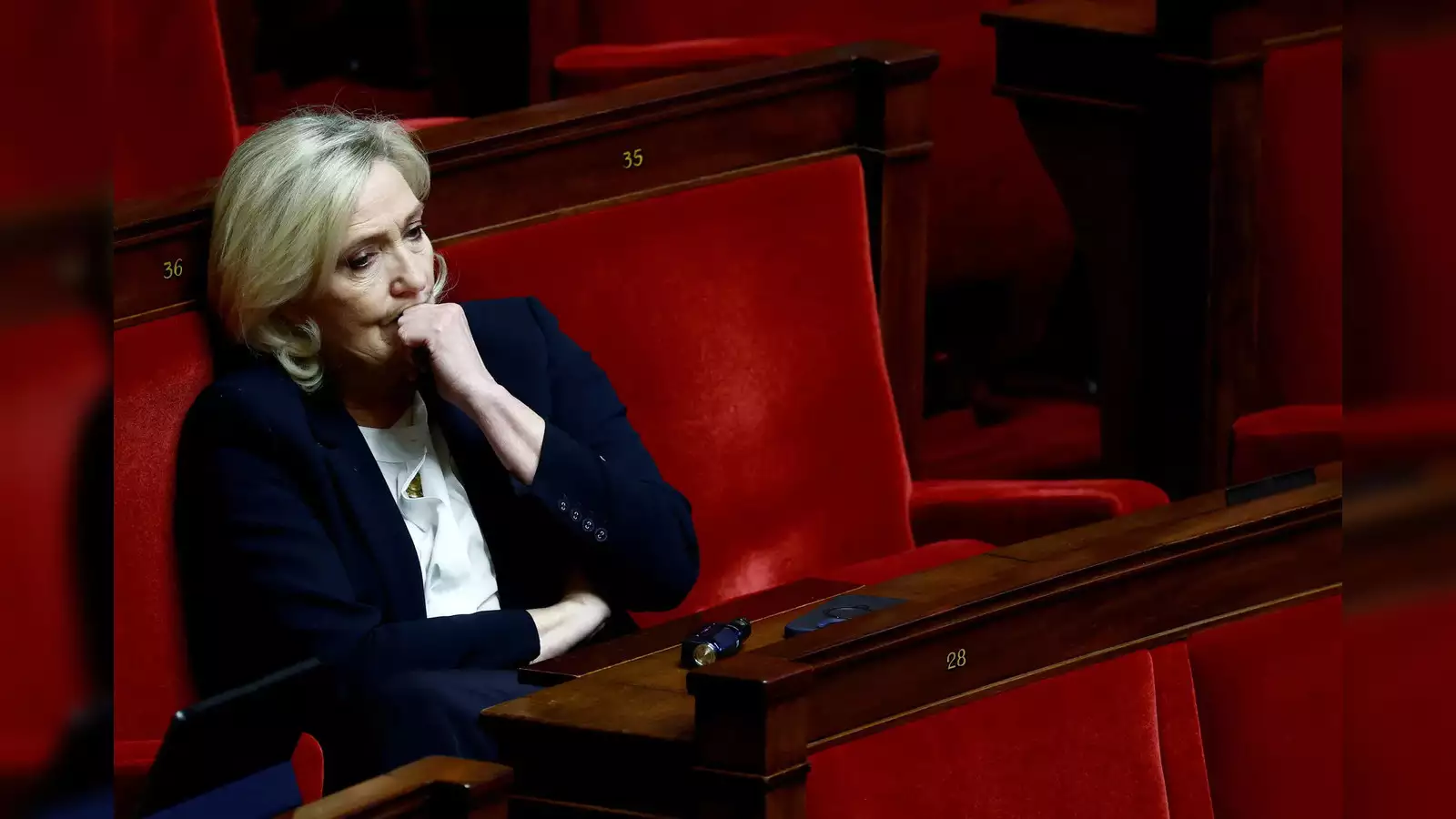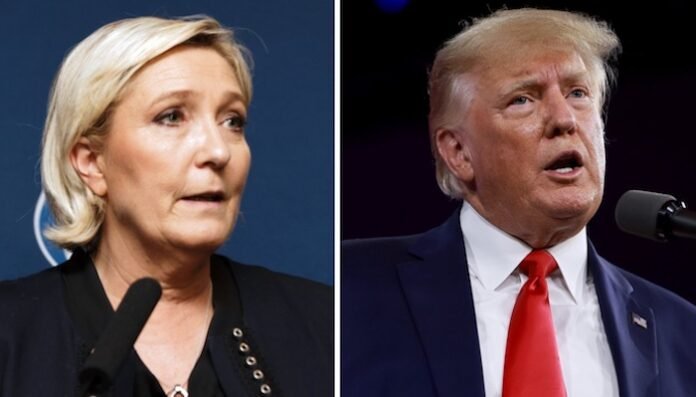By Tim Rosenberger
The conviction of Marine Le Pen, France’s leading opposition figure, on charges of misusing European Union funds—and her subsequent five-year ban from seeking elected office—should be a watershed moment for anyone still clinging to the idea that Western democracies are immune from authoritarian tendencies.
Her disqualification, just two years before the 2027 French presidential election, is not a triumph of the rule of law. It is the triumph of lawfare: the use of legal tools to crush political dissent under a veneer of legitimacy.
This isn’t speculation. This is strategy. And it’s the same strategy that left-wing prosecutors deployed again and again against President Donald J. Trump. For years, President Trump faced not just criticism or electoral competition, but a coordinated barrage of criminal and civil prosecutions, selectively timed and strategically constructed to keep him off the ballot and wear down his political movement. If corrupt New York courts could have banned the president from the ballot last year, they would have, denying the voters their choice in the 2024 election.
President Trump warned us this would happen. He warned that the United States’ legal system was being hijacked by ideologically driven bureaucrats—what he called the deep state—intent on controlling outcomes regardless of democratic will. He warned that Western elites, in their arrogance, had turned democracy into a hollow ritual, preserving the outward form of elections while manipulating the institutions behind the scenes to ensure only one kind of candidate could win. The lawfare against Marine Le Pen proves just how prophetic those warnings were.
For years, President Trump challenged not just our domestic establishment, but our European allies as well. He was mocked for it, accused of undermining the postwar liberal order. But he was asking a much deeper question: if these allies want to be treated as equals in a democratic alliance, shouldn’t they act like democracies? Shouldn’t they be willing to tolerate dissenting views, contested elections, and outsider movements—rather than criminalize them?
Europe, especially France, has failed that test. And in doing so, it has handed Vladimir Putin and other authoritarian leaders the perfect talking point: that the West no longer believes its own rhetoric about free societies. When Russia jails opposition leaders, the West protests. When France does it, it’s called law and order. But to ordinary citizens—in Europe, in America, and around the world—it looks like the same game: protect the regime, eliminate the threat.

President Trump has always understood that the strength of a democracy lies not in its press releases, but in its ability to tolerate real, meaningful political competition. That means accepting that movements outside the technocratic consensus—be they nationalist, populist, religious, or working-class—have a legitimate place in public life. When the administrative class instead uses indictments, investigations, and disqualifications to eliminate those movements, it only confirms what President Trump has said all along: the deep state is not a conspiracy theory. It is a governing philosophy, one that sees democratic accountability as a threat to be neutralized.
This is why the lawfare campaign against President Trump and the coordinated suppression of figures like Le Pen cannot be treated as separate phenomena. They are part of the same elite-driven effort to narrow the range of acceptable political opinion. They aim to make elections safe for establishment candidates by making dissent legally perilous. They aim to ensure that the only real choices offered to voters are ones that do not disturb the bureaucracy’s grip on power.
President Trump’s critics used to say he was reckless for questioning NATO, the European Union, and the foreign policy consensus. But what he recognized—before most others—was that the real threat to the West was internal. It was the growing willingness of liberal democracies to adopt illiberal tools in the name of protecting themselves from populism. But populism is not the enemy of democracy. It is the voice of the people demanding to be heard.
What France has done to Marine Le Pen—and what American lawfare almost did to President Trump—is not just legally troubling. It is politically suicidal. If the West is to present a real alternative to autocracy, it must recover the courage to permit real political debate, even when it is inconvenient. If it cannot, then President Trump will have been more than just right—he will have been indispensable.
The West cannot afford to keep treating populist dissent as a virus to be eradicated. Instead, it must be appreciated as a corrective to a failing elite, and a necessary expression of a free people. President Trump understood that. It’s time the rest of the West did too.
Tim Rosenberger is a legal fellow at the Manhattan Institute. Previously he was a legal policy fellow at the Cicero Institute, a parish pastor, and a management consultant with McKinsey & Company. Tim has contributed to a variety of academic, popular, and professional publications, including the Wall Street Journal, The Hill, The New York Post, and City Journal. He holds an AB from Georgetown University, a M.Div. from United Lutheran Seminary, a D.Min from the Rawlings School of Divinity, an LL.M. from Universität Wien, and a JD/MBA from Stanford University, where he was Federalist Society Chapter President and served on Law Review.
The views and opinions expressed in this article are those of the author and do not necessarily reflect the official policy or position of Censational Market.

